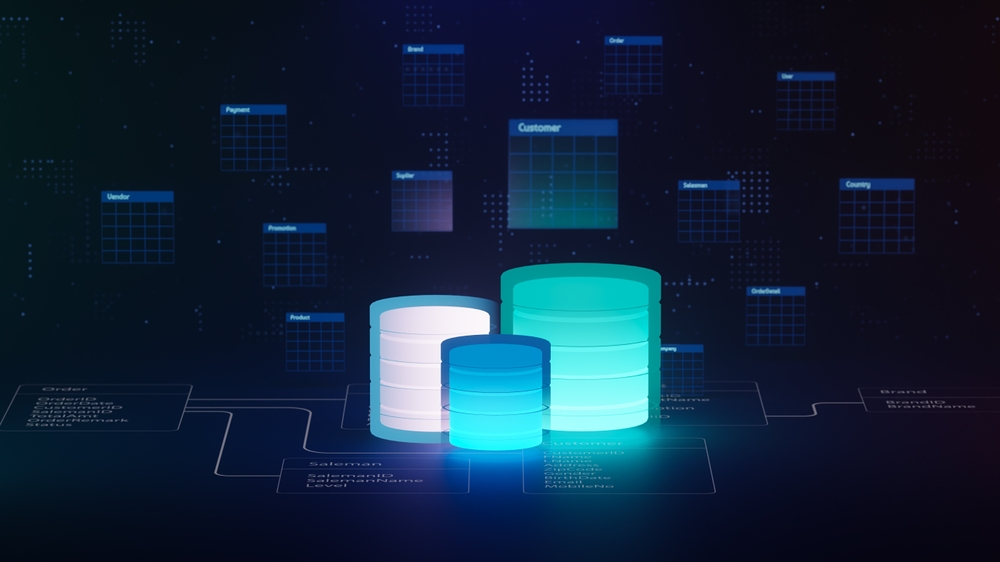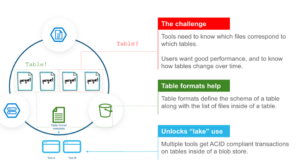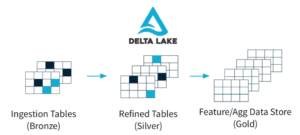
(Tee11/Shutterstock)
One of many large breakthroughs in knowledge engineering over the previous seven to eight years is the emergence of desk codecs. Sometimes layered atop column-oriented Parquet recordsdata, desk codecs like Apache Iceberg, Delta, and Apache Hudi present vital advantages to large knowledge operations, such because the introduction of transactions. Nonetheless, the desk codecs additionally introduce new prices, which prospects ought to concentrate on.
Every of the three main desk codecs was developed by a unique group, which makes their origin tales distinctive. Nonetheless, they had been developed largely in response to the identical sort of technical limitations with the large knowledge established order, which impacts enterprise operations of all kinds.
As an example, Apache Hudi initially was created in 2016 by the info engineering workforce at Uber, which was a giant person (and likewise a giant developer) of massive knowledge tech. Hudi, which stands for Hadoop Upserts, Deletes, and Incrementals, got here from a need to enhance the file dealing with of its large Hadoop knowledge lakes.
Apache Iceberg, in the meantime, emerged in 2017 from Netflix, additionally a giant person of massive knowledge tech. Engineers on the firm grew annoyed with the constraints within the Apache Hive metastore, which may doubtlessly result in corruption when the identical file was accessed by completely different question engines, doubtlessly resulting in unsuitable solutions.
Equally, the parents at Databricks developed Delta in 2017 when too many knowledge lakes was knowledge swamps. As a key element of Databricks’ Delta Lake, the Delta desk format enabled customers to get knowledge warehousing-like high quality and accuracy for knowledge saved in S3 or HDFS knowledge lakes–or a lakehouse, in different phrases.
As a knowledge engineering automation supplier, Nexla works with all three desk codecs. As its shoppers’ large knowledge repositories develop, they’ve discovered a necessity for higher administration of information for analytic use circumstances.
The massive profit that each one desk codecs convey is the potential to see how information have modified over time, which is a function that has been widespread in transactional use circumstances for many years and is pretty new to analytical use circumstances, says Avinash Shahdadpuri, the CTO and co-founder of Nexla.
“Parquet as a format didn’t actually have any kind of historical past,” he tells Datanami in an interview. “If I’ve a document and I needed to see how this document has modified over a time period in two variations of a Parquet file, it was very, very arduous to try this.”
The addition of recent metadata layers inside the desk codecs allows customers to achieve ACID transaction visibility on knowledge saved in Parquet recordsdata, which have turn into the predominant format for storing columnar knowledge in S3 and HDFS knowledge lakes (with ORC and Avro being the opposite large knowledge codecs).
“That’s the place a little bit little bit of ACID comes into play, is you’re in a position to roll again extra reliably as a result of now you had a historical past of how this document has modified over a time period,” Shahdadpuri says. “You’re now in a position to basically model your knowledge.”
This functionality to rollback knowledge to an earlier model is useful particularly conditions, akin to for a knowledge set that’s regularly being up to date. It’s not best in circumstances the place new knowledge is being appended to the tip of the file.
“For those who’re in case your knowledge isn’t just append, which might be 95% of use circumstances in these basic Parquet recordsdata, then this tends to be higher since you’re in a position to delete, merge and replace significantly better than what you’ll have been in a position to do with the basic Parquet file,” Shahdadpuri says.
Desk codecs enable customers to do extra manipulation of information immediately on the info lake, just like a database. That saves the shopper from the time and expense of pulling the info out of the lake, manipulating it, after which placing it again within the lake, Shahdadpuri says.
Customers may simply depart the info in a database, after all, however conventional databases can’t scale into the petabytes. Distributed file techniques like HDFS and object shops like S3 can simply scale into the petabyte realm. And with the addition of a desk format, the person doesn’t need to compromise on transactionality and accuracy.
That’s to not say there are not any downsides. There are all the time tradeoffs in pc architectures, and desk codecs do convey their very own distinctive prices. Based on Shahdadpuri, the prices come within the type of elevated storage and complexity.
On the storage entrance, the metadata saved by the desk format can add as little as a ten p.c storage overhead, all the way in which as much as a 2x penalty for knowledge that’s regularly altering, Shahdadpuri says.
“Your storage prices can enhance fairly a bit, as a result of earlier you had been simply storing Parquet. Now you’re storing variations of Parquet,” he says. “Now you’re storing your meta recordsdata towards what you already had with Parquet. In order that additionally will increase your prices, so you find yourself having to make that commerce off.
Clients ought to ask themselves in the event that they really want the extra options that desk codecs convey. In the event that they don’t want transactionality and the time-travel performance that ACID brings, say as a result of their knowledge is predominantly append-only, then they could be higher off sticking with plain previous Parquet, he says.
“Utilizing this extra layer positively provides complexity, and it provides complexity in a bunch of various methods,” Shahdadpuri says. “So Delta generally is a little extra efficiency heavy than Parquet. All of those codecs are a little bit bit efficiency heavy. However you pay the price someplace, proper?”
There is no such thing as a single greatest desk format, says. As a substitute, the most effective format emerges after analyzing the precise wants of every consumer. “It will depend on the shopper. It will depend on the use case,” Shahdadpuri says. “We wish to be impartial. As an answer, we might help every of this stuff.”
With that mentioned, the parents at Nexla have noticed sure developments in desk format adoption. The massive issue is how prospects have aligned themselves close to the large knowledge behemoths: Databricks vs. Snowflake.
Because the creator of Delta, Databricks is firmly in that camp, whereas Snowflake has come out in help of Iceberg. Hudi doesn’t have the help of a serious large knowledge participant, though it’s backed by the startup Onehouse, which was based by Vinoth Chandar, the creator of Hudi. Iceberg is backed by Tabular, which was co-founded by Ryan Blue, who helped created Iceberg at Netflix.
Massive firms will most likely find yourself with a mixture of completely different desk codecs, Shahdadpuri says. That leaves room for firms like Nexla to return in and supply instruments to automate the mixing of those codecs, or for consultancies to manually sew them collectively.
Associated Gadgets:
Massive Knowledge File Codecs Demystified
Open Desk Codecs Sq. Off in Lakehouse Knowledge Smackdown
The Knowledge Lakehouse Is On the Horizon, However It’s Not Easy Crusing But
acid, ACID transactions, Apache Hudi, Apache Iceberg, large knowledge, knowledge administration, Delta, Delta Lake, Delta Desk format, Hadoop, rollback, s3, desk codecs




